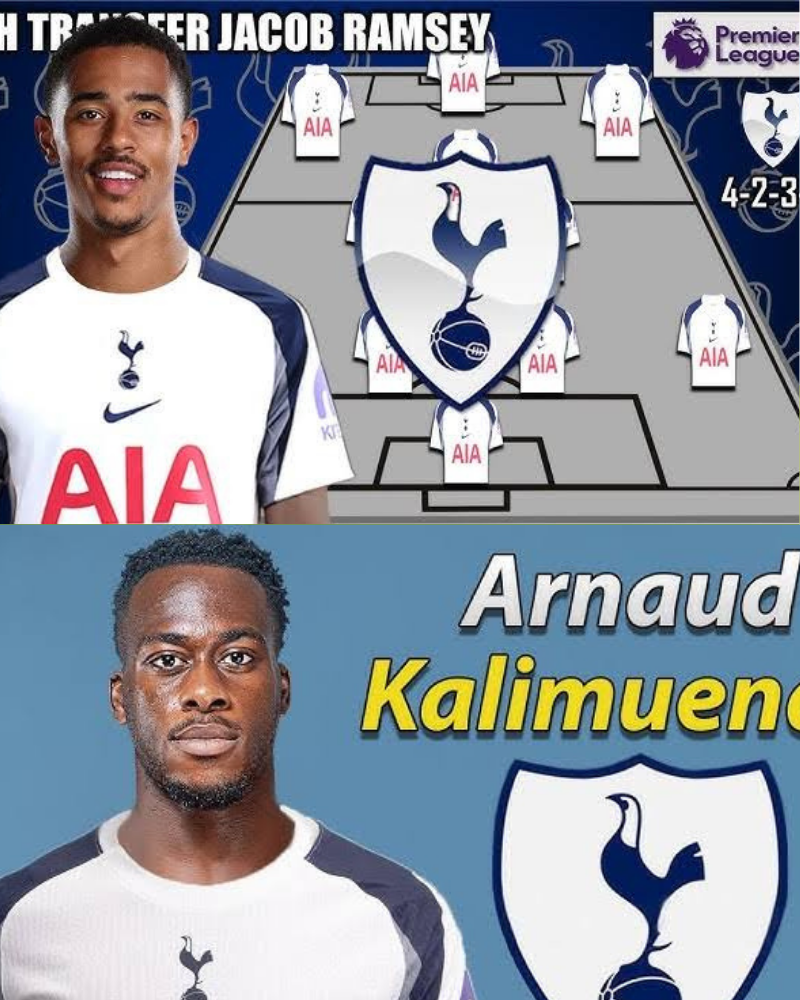Tottenham’s Calculated Gamble: The Kyle Walker-Peters Homecoming

In the intricate chess game of modern football transfers, Tottenham Hotspur find themselves contemplating a move that exemplifies both pragmatism and sentiment. The North London club are reportedly considering bringing Kyle Walker-Peters back to White Hart Lane on a free transfer, a decision that speaks to the evolving complexities of squad building in the Champions League era.
The primary catalyst for Tottenham’s interest in Walker-Peters isn’t purely footballing merit, though that certainly plays a part. Instead, it’s the labyrinthine regulations governing UEFA’s Champions League squad registration that have pushed Spurs toward this reunion. The club currently finds itself in a precarious position regarding their “club-trained” player quota, with only Brandon Austin fulfilling this crucial criterion.
UEFA’s regulations demand that eight players in a Champions League A-List squad must be locally trained, with a maximum of four being association-trained rather than club-trained. This distinction, while seemingly bureaucratic, has profound implications for squad depth and tactical flexibility in Europe’s premier competition. When a club falls short of these requirements, they face the stark reality of having their squad size reduced accordingly, potentially limiting their options during crucial knockout phases.
For Tottenham, who have invested heavily in their return to Champions League football, maximizing their available squad slots represents both a strategic necessity and a competitive advantage. Walker-Peters, having spent two formative years in Tottenham’s youth academy from 2013 to 2015 before progressing through to the senior squad, perfectly fits the bill as a club-trained player.
Walker-Peters’ departure from Tottenham in 2020 initially seemed like another case of a promising academy graduate seeking opportunities elsewhere. His move to Southampton, first on loan and then permanently, has proven to be a masterclass in career development. Over 169 league appearances for the Saints, Walker-Peters transformed from a fringe player at Spurs into an integral component of Southampton’s setup.
The statistics tell only part of the story. During his time at St. Mary’s, Walker-Peters evolved from a player struggling for minutes to one capable of influencing matches at the highest level. His versatility became a defining characteristic, equally comfortable operating as a left-back or right-back, providing Southampton with tactical flexibility that managers prize in the modern game.
Russell Martin’s description of Walker-Peters as a “beautiful footballer” following his crucial goal against Bristol City in December 2023 encapsulated the player’s development. This wasn’t merely about technical ability, though Walker-Peters possesses that in abundance. It was recognition of a player who had matured into someone capable of moments of genuine quality when his team needed them most.
The numbers from his Southampton career paint a picture of consistency and reliability. His defensive statistics showed marked improvement year on year, while his attacking contributions remained steady. More importantly, his availability figures demonstrated the kind of durability that managers value highly in full-back positions, where the physical demands are among the highest in football.
Walker-Peters’ initial stint at Tottenham tells a familiar story of academy graduates struggling to break into first-team setups at elite clubs. Despite graduating through the youth system and making 24 appearances in all competitions, he never truly established himself as a first-choice option. This narrative, while disappointing for the player at the time, perhaps makes the current situation all the more intriguing.
His debut under Mauricio Pochettino hinted at the potential that Tottenham scouts had identified years earlier. The December 2018 match against Bournemouth provided the clearest glimpse of what Walker-Peters could offer. In that comprehensive 5-0 victory, he registered three assists, becoming the youngest player to achieve such a feat in a Premier League match since Jermain Pennant in August 2003
This performance should have been a launching pad for regular first-team involvement, yet Walker-Peters found himself still struggling for consistent opportunities. His own reflection on this period reveals both maturity and determination: “I never understood why I didn’t play much after I got man of the match, but the manager has to make decisions and what he thinks is best.”
The philosophical approach he adopted during those challenging times speaks to character traits that have undoubtedly contributed to his subsequent success. Rather than allowing frustration to derail his development, Walker-Peters used the experience as motivation: “I just always made sure in training I worked hard and really tried to improve for myself, because ultimately when that opportunity does come, as it did at the end of the season, I had to show I’d improved and I was capable to play.”
The Tottenham Hotspur that Walker-Peters might return to is markedly different from the one he left in 2020. The club’s infrastructure has evolved, their playing style has adapted, and their squad composition reflects different priorities. Most significantly, their Champions League status creates opportunities that didn’t exist during his previous tenure.
Current manager considerations aside, Walker-Peters would return to a squad where his versatility could prove invaluable. Modern football increasingly rewards players capable of operating in multiple positions, and full-backs who can switch flanks seamlessly are particularly prized. His Premier League experience, accumulated over four seasons with Southampton, represents a level of knowledge and adaptability that academy graduates often lack when first breaking through.
The competitive landscape at Tottenham has also shifted. While the club has invested in full-back positions, the demands of competing across multiple fronts create opportunities for squad players to contribute meaningfully. Walker-Peters wouldn’t necessarily be returning with expectations of immediate first-team prominence, but rather as someone who could provide reliable cover and tactical flexibility.
The interest in Walker-Peters extends beyond Tottenham, with Everton and Wolverhampton Wanderers also reportedly monitoring his situation. This competition adds layers of complexity to any potential deal, particularly given the financial constraints that all Premier League clubs navigate in the current market.
Everton’s interest makes particular sense given their recent struggles and need for experienced Premier League players who can contribute immediately. Their financial situation might make a free transfer particularly attractive, especially for a player with Walker-Peters’ proven track record. Similarly, Wolves’ reported interest aligns with their model of acquiring players with specific skill sets who can adapt to their tactical requirements.
However, Tottenham’s advantages in this potential transfer race are significant. The emotional connection of returning to his former club, combined with the opportunity to compete in the Champions League, could prove decisive factors. Additionally, his reported keenness on a return suggests that he views this as more than merely a career move.
From a purely tactical perspective, Walker-Peters would offer Tottenham valuable options. His ability to operate effectively on either flank addresses the perennial challenge of providing adequate cover for first-choice full-backs. Injuries, suspensions, and tactical adjustments all become more manageable when versatile players are available.
His playing style has evolved during his time at Southampton to become more defensively solid while retaining the attacking instincts that initially caught attention. This balance would suit Tottenham’s needs, particularly in European competition where tactical discipline often proves crucial. His experience of playing regular Premier League football also means he would require minimal adaptation time, unlike younger alternatives who might need development periods.
The question of whether Walker-Peters possesses the quality to contribute meaningfully to Tottenham’s ambitions remains central to any decision. His Southampton performances suggest a player who has maximized his potential through consistent application and professional development. While he may not possess the individual brilliance that defines elite full-backs, his reliability and versatility could prove equally valuable.
The financial aspects of this potential transfer are particularly attractive for Tottenham. With Walker-Peters available on a free transfer, the primary costs would involve wages and potentially signing bonuses, rather than transfer fees. In an era where full-back transfers often command significant fees, this represents excellent value for money.
Contract negotiations would likely focus on length and performance-related incentives rather than basic wages. Walker-Peters, at 28, is entering his prime years and would presumably seek assurances about playing time and development opportunities. Tottenham would need to balance these requirements with their existing squad commitments and future transfer plans.
The broader financial implications extend beyond the immediate costs. Having adequate squad depth reduces the risk of expensive emergency transfers during seasons when injuries mount up. It also provides flexibility in future transfer windows, knowing that certain positions are adequately covered.
The potential return of Walker-Peters touches on broader themes around club identity and academy development. Tottenham fans have long advocated for greater faith in youth products, viewing successful academy graduates as embodying the club’s values and traditions. Walker-Peters’ return would represent a vindication of the academy system and demonstrate that pathways exist for players to return stronger after gaining experience elsewhere.
This narrative resonates particularly strongly in contemporary football, where the relationship between clubs and their academy products has become increasingly complex. The financial pressures of modern football often force clubs to prioritize immediate success over long-term development, sometimes at the expense of promising young players.
Walker-Peters’ journey from Tottenham academy graduate to Southampton regular and potentially back to Spurs represents a more nuanced approach to player development. It acknowledges that sometimes the best path forward involves temporary separations that ultimately benefit both player and club.
Any decision regarding Walker-Peters must be viewed within Tottenham’s broader transfer strategy for the upcoming season. Reports suggest that while the club is interested in bringing him back, they are simultaneously pursuing higher priority transfers. This approach reflects mature transfer planning that addresses both immediate needs and long-term sustainability.
The challenge for Tottenham lies in balancing multiple objectives: strengthening their first-team squad, maintaining Champions League compliance, managing financial constraints, and preserving opportunities for existing players. Walker-Peters represents a solution to several of these challenges without creating new problems.
His signing would also demonstrate Tottenham’s willingness to think creatively about squad building. Rather than simply competing for high-profile transfers, they would be identifying value opportunities that address specific regulatory and tactical requirements.
The potential return of Kyle Walker-Peters to Tottenham represents more than just a transfer; it embodies modern football’s complexity and the creative solutions required to navigate it successfully. While the primary motivation may be UEFA’s club-trained player requirements, the football merits of the move are equally compelling.
Walker-Peters returns to Tottenham as a significantly different player from the one who left in 2020. His Southampton experience has provided the consistency and confidence that were perhaps lacking during his initial Spurs tenure. He offers versatility, Premier League experience, and the kind of professional reliability that successful squads require.
For Tottenham, this represents an opportunity to address multiple strategic needs through a single, cost-effective signing. They would gain a club-trained player for Champions League purposes, tactical flexibility for their squad, and potentially closure on a relationship that ended with mutual disappointment.
The broader implications extend beyond the immediate benefits. Should Walker-Peters successfully reintegrate at Tottenham, it could influence how other clubs approach relationships with former academy graduates. The traditional model of permanent departures might give way to more fluid arrangements where returns become viable options.
Ultimately, this potential transfer reflects the maturing of both player and club. Walker-Peters has developed into a reliable Premier League performer, while Tottenham have evolved into an organization capable of making pragmatic decisions that balance multiple priorities. Whether this reunion materializes remains to be seen, but the logic behind it illustrates the sophisticated thinking required in modern football’s transfer market.
The coming weeks will reveal whether this calculated gamble becomes reality, but the consideration itself demonstrates how clubs must now think creatively to maximize their potential within increasingly complex regulatory frameworks. For Kyle Walker-Peters, it represents a chance to complete unfinished business. For Tottenham, it offers a elegant solution to a multi-faceted challenge.















